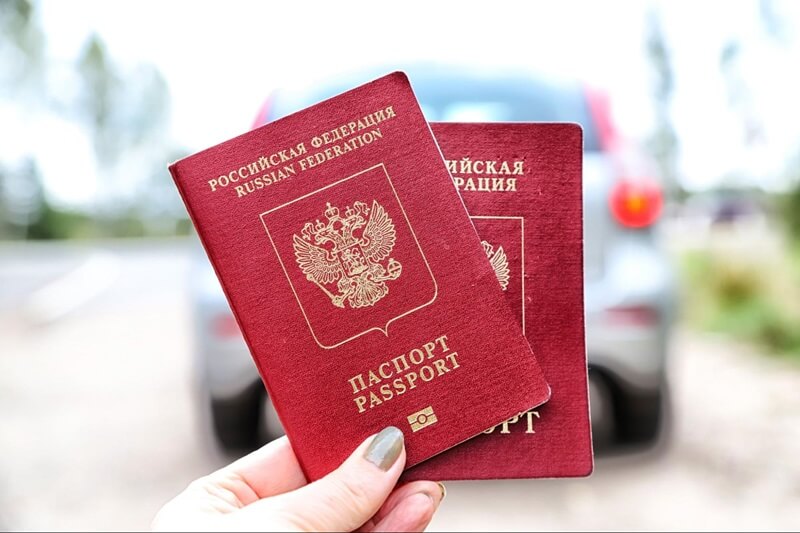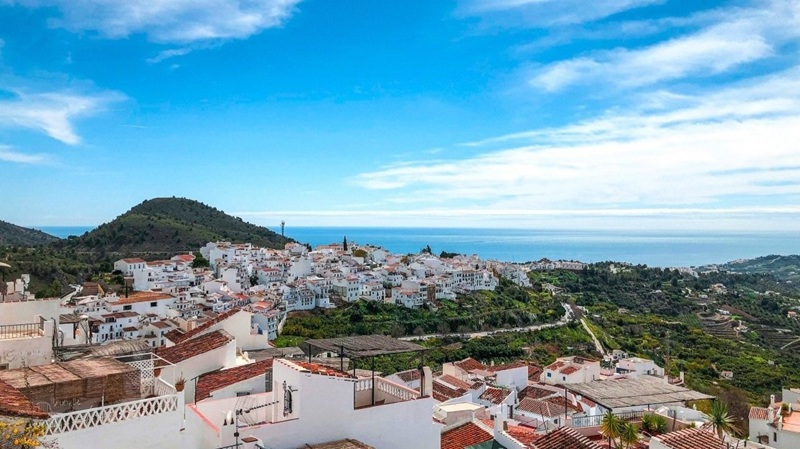Residence Permit vs. Permanent Residence: Understanding the Differences for Global Investors
In this current interconnected world, most high-net-worth individuals, entrepreneurs, and investors create their goals for improving quality of life and better mobility. The strategy to achieve those would be mainly obtaining residency or citizenship through investment in foreign countries.
The two most common routes which have emerged from this trend are residence permits and permanent residence. While these terms sound similar, the differences are very stark and create a big difference in the rights, responsibilities, and long-term plans an individual has. For those considering Residency by Investment or Citizenship by Investment programs, the subtleties between the two options are often explained in minute detail for the sake of informed decision-making.

Understanding Residency and Its Importance
Residency in a foreign country opens up opportunities in better healthcare, education, and business, among others, as well as offers increased global mobility. As visa-free travel and tax optimization remain at the heart of decisions for global investors, residency programs ease the path to such goals.
While for many, it is ultimately about citizenship to pursue full integration with a country, residency by investment offers a flexible alternative, and often more rapid than others, which may allow residents to benefit from most of the advantages accorded to citizens without full commitment to citizenship.
Why Do People Seek Residency in Foreign Countries?
- Quality of Life: Most countries that offer RBI programs enjoy the best healthcare, world-class education, and safety. Investors are able to provide a better future for their families while still maintaining freedom of movement globally.
- Visa-Free Travel: Residency in certain countries, especially those that are part of the European Union or Schengen Zone, includes visa-free travel within a wide swath of countries, facilitating movement for both business and personal reasons.
- Tax Planning: A residence in countries with favorable tax regimes provides enormous financial opportunities. Investors have the possibility to take advantage of low tax rates, wealth protection, and estate planning.
- Business Opportunities: Residence in economically stable regions offers possibilities for investors to access lucrative business markets, trade agreements, and better infrastructure.
What is a Residence Permit?
A residence permit is a temporary legal authorisation given to a non-citizen to stay in a country for a certain period of time. The period of a residence permit differs amongst countries and the purpose of stay, such as through work, study, family reunification, and investment. Residence permits should normally be renewed after some time, and their renewal requirements depend on each country.
Key Traits of a Residence Permit:
- Definition: The residence permit for a foreigner is when it allows him/her to live in a country temporarily; it means it is issued for a set of years normally, say 1–5 years.
- Purpose: Normally, residence permits are meant and issued for one reason or another; these may be in respect of employment, education, family reunification, or even investment. Residency by investment stands among one of the highly sought pathways of investors in an effort to show interest and eventually obtain a residence permit.
- Time frame: Duration of residence on residence would vary according to the country granting it. For instance, countries like Portugal and Greece in Europe provide permits that last up to one to five years, renewable.
Restrictions may include, but are not limited to, limitations of certain work permissions, travel restrictions, or access to public services such as healthcare or education. Residency permits carry no voting rights or holding of public office.
Examples of Some Programs Offering Residence Permits:
- Portugal Golden Visa : Investors can get a temporary residence permit through a qualified investment in real estate, job creation, or contribution to cultural and scientific projects. It is valid for two years and can be renewed for successive periods of two years.
- Greek Golden Visa: The residence permit granted to those who invest in real estate is renewable every five years, with no minimum stay requirements.
What is Permanent Residence?

Permanent residence conveys the right of non-nationals to live in a country without restrictions. In distinction from a residence permit, permanent residence is seldom subject to any renewal procedure. Though not to be equated with citizenship, it enjoys almost identical privileges and, as such, often works as a stepping stone to naturalization and citizenship.
Key Characteristics of Permanent Residence:
- Definition: Permanent residence is a residence status where foreign nationals are allowed to live in any particular country without the need for renewal from time to time.
- Purpose: A permanent resident enjoys almost all the rights that a citizen enjoys, except in matters such as the right to vote or run for a public office.
- Permanence: Permanent residence generally does not expire, but several states may require periodic confirmation of status or re-entry in such cases after long absences.
- Benefits:
- Access to Social Services: Permanent residents usually have full access to health care, education, and social services within their host country.
- Right to Work and Study: Permanent residents have unlimited residence, employment, or study rights within the host country.
- Path to Citizenship: Often, permanent residence is used as a path to full citizenship. Most countries have laws where any permanent resident must reside in that country for a certain amount of years before they are allowed to apply for citizenship.
Example Programs Offering Permanent Residence:
- Canada: The Quebec Investor Program provides foreign nationals with direct permanent residence through investment. Permanent residents in Canada are entitled to access universal health care and top-quality education.
- Australia: The country makes available different routes to permanent residence through both skilled immigration and investment routes. Permanent residents have almost similar rights to those of citizens except for voting rights.
Main Differences Between a Residence Permit and Permanent Residence
While residence permits and permanent residence both enable one to live in a country legally, there are differences in the duration of stay, access to rights, and services. Duration of Stay:
- Residence Permit: A residence permit is temporary and usually must be renewed over a certain period of time. The requirements to secure renewal may also include continued investment, employment, or proof of income.
- Permanent Residence: Permanent residence consists of an unlimited right of residence in the country, without regular renewals, but in some countries may consist of periodic confirmation.
Rights and Benefits Accrual:
- Residence Permit: A residence permits grants residency in a country but can limit the holder from making use of public services, entry into certain professions, and outings abroad for more than a certain period of time. These vary between countries and permit type.
- Permanent Residence: Permanent residents usually enjoy the same rights as citizens when it comes to access to healthcare, education, and social services. Full voting rights and holding public office are often out of bounds.
Road to Citizenship
- Residence Permit: A residence permit can be a route/provide a path to permanent residence and citizenship, but this procedure may be rather long and complicated, as it often requires multiple renewals to be performed and usually requires certain qualifications to be met.
- Permanent Residence: Permanent residency sometimes makes the process of acquiring citizenship easier, as one can apply for naturalization upon completion of the residency requirements, usually within 5–10 years.
Renewal vs. Stability:
- Residence Permit: In as much as residence permits will require renewal every so often, this does mean some ongoing administrative burden for the holder of such. This, of course, can be linked with continued investment, employment status, or other conditions depending on the country.
- Permanent Residence: Permanent residents, on the other hand, have more stability in the long term because the status is usually indefinite. Some countries may impose a confirmation of status or prescribe rules for re-entry upon extended absences, but at least this eliminates the frequent need for renewals.
Residence Permit by Investment versus Permanent Residence
When investors consider RBI and CBI programs, understanding the way these routes offer different residency will be important. Most of the residency by investment programs start with a residence permit, but in some countries, one can have permanent residence through direct investment.
Residency by Investment (RBI):
- Residence Permit: Most RBI programs start with temporary residence permits. For example, the Portugal Golden Visa or Greece Golden Visa allows one to obtain residence permits against the purchase of real estate, investment in businesses, or even contribution to certain sectors. With time, such residence permits can accrue permanent residence or citizenship, provided one meets the country’s residency requirements.
Permanent Residence through Investment:
- Direct Permanent Residence: Countries such as Canada or some Caribbean countries offer direct permanent residence for investment. In other words, it is not obligatory to apply for a temporary residence permit first, which gives long-term stability right from the start. Normally speaking, direct permanent residence programs are more attractive for investors who would prefer a fast-track solution with fewer administrative problems.
Criteria to Decide Between a Residence Permit and Permanent Residence

While dealing with investment-based residency, different critical considerations come into play. The decision for the temporary residence permit or permanent residency will be decided based on the individual’s priorities and long-term goals of each investor.
Investment Amount:
- Residence Permit: Temporary residence permits may require lower initial investment in comparison to permanent residence. But additional investments may be necessary when it comes to its renewal or shifting to permanent residence.
- Permanent Residence: Usually, direct permanent residence programs are more investment-heavy but have more immediate and long-term benefits.
Flexibility:
- Residence Permit: A temporary residence permit may be more flexible for those who do not plan to live full-time in the host country. Some programs, like Greece’s Golden Visa, do not have any minimum stay requirements for maintaining the residency.
- Permanent Residency: Permanent residency would apply better to people who have long-term goals, as it offers more stability with less administrative procedure. Mobility and Travel: • Residence Permit: There may be some travel restrictions concerning residence permit holders, especially when the permit itself is under some conditions, such as sustained investment or employment.
- Permanent Residency: The permanently resident will have wider freedom of movement, with many countries having visa-free travel across the member states. Especially in the case of the EU or Schengen Zone.
Tax Consequences:
Residence and also permanent residence can imply different tax consequences depending on a lot of countries. An investor has to be aware of the tax consequences of his chosen program, which includes but is not restricted to income, wealth, and inheritance taxes.
Eligibility for Citizenship:
The standard route is that permanent residents typically acquire eligibility for citizenship sooner than residence permit holders. For example, in Portugal, a country that allows multiple citizenships, permanent residents can apply for citizenship after five years, though residence permit holders may have to renew permits before they will be qualified.
Program Examples Offering Residence Permits and Permanent Residence
Some of the most popular RBI and CBI programs in different countries lead to residence permits or permanent residence.
- Portugal Golden Visa: Provides a temporary residence permit initially that could be eligible for permanent residence in five years and then citizenship after that.
- Greece Golden Visa: A residence permit is issued with no minimum stay requirement. Permanent residence or citizenship is dependent on long-term residence.
- Permanent Residence Canada: The investment programs directly lead to permanent residence, allowing immediate settlement in the country, an example of which is through the Quebec Investor Program.
- Vanuatu: This provides a direct path to citizenship via investment, with no need for any temporary or permanent residency in advance.
Conclusion: Which is Right for You?
In fact, residence permit, or permanent residence is up to your personal and financial goals. As it provides investors with flexibility, short-term residency, or lower initial investments, applications with the help of such popular RBI programs as Portugal Golden Visa or Greece Golden Visa may show interest in residence permits. Meanwhile, long-term stability applicants, who prefer fewer administrative requirements, with an apparent way to citizenship, will find permanent residence through direct investment more appealing.
Besides these aspects, other important investment thresholds, residency requirements, tax implications, and family inclusions will inform your choice. Given the complexity of global residency and citizenship programs, consulting an immigration professional or legal advisor is highly recommended. Their expertise will be able to advise you through these options and to select the best path that will suit your personal, business, and financial goals.











